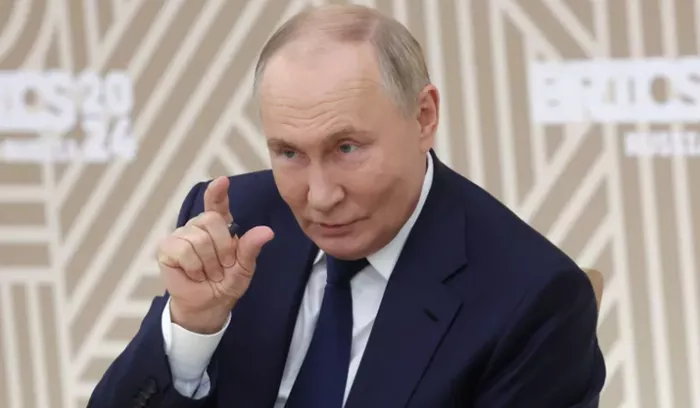Moscow Exploits Illegal Immigration as a Form of Hybrid Warfare.
Moscow understands the destabilizing impact of illegal immigration. As a strategy of hybrid warfare, both Russia and its ally, Belarus, have made it easier for illegal migrants to cross into the European Union (EU) through their typically well-guarded borders. In response, several European countries are taking action.
Finland Takes Action Against Asylum Seekers
On Friday, Finland’s parliament approved a law allowing border guards to block asylum seekers from entering the country. This decision comes after more than 1,300 migrants arrived, prompting Helsinki to close its border. Finnish officials accuse Russia of weaponizing migration by encouraging migrants from countries like Syria and Somalia to cross the border, a claim the Kremlin denies. In response, Finland has constructed stretches of border wall, and Norway, which also shares a border with Russia, may implement similar measures.
Latvia Faces Increased Migrant Influx
Historian Ilya Lensky has noted that Latvia’s current border fence should have been established three decades ago. He points to the increasing number of Middle Eastern migrants attempting to enter Latvia from Belarus. “People are constantly trying to cross,” he explains, highlighting how this situation overwhelms border services. Lensky believes the influx, organized by Belarusian authorities, aims to provoke violence. He warns that there is a risk of tensions escalating to the point where Latvian border guards may have to use deadly force against asylum seekers.
Estonia’s Concerns About Russian Actions
Estonian Interior Minister Lauri Läänemets reported that Russia has extended a controversial measure, originally aimed at Finland, to Estonia. This allows asylum seekers without visas or residence permits to reach crossing points on the shared border. Läänemets stated, “Russia lets them pass without any reason, which means we have to deal with their concerns.” He described this as a deliberate effort to burden Estonia’s border control efforts.
Lithuania Implements New Legislation
In April 2023, Lithuania’s parliament enacted legislation allowing authorities to deny entry to asylum seekers. This is part of Lithuania’s strategy to combat illegal immigration from Belarus, a move criticized by human rights advocates. The Baltic state has been conducting “pushbacks” since 2021, as thousands of migrants from the Middle East and Africa attempt to enter the EU via Lithuania, Latvia, and Poland.
Poland Faces Increased Border Tensions
Poland has struggled to manage the influx of migrants assisted by Russia and Belarus. Earlier this year, Polish border guards faced violent attacks from migrants, including a tragic incident where Sgt. Mateusz Sitek was killed by a barrage of crude spears thrown from the Belarusian side. In response to these threats, the Polish parliament voted overwhelmingly to allow security forces to use live ammunition against attempts to storm the border. Prime Minister Donald Tusk announced plans to temporarily suspend the right to asylum in Poland, emphasizing that he seeks recognition from Europe for this decision.
EU’s Stance on Russian Actions
The EU Council expressed support for Tusk’s actions, stating that “Russia and Belarus, or any other country, cannot be allowed to abuse our values, including the right to asylum.” Following a meeting in Brussels, the 27 EU leaders issued this statement to reinforce their commitment to defending democratic principles.
Danish Prime Minister Mette Frederiksen echoed these sentiments, stating that the conversation about migrants and asylum seekers had become “more realistic and honest.” However, EU Commission President Ursula von der Leyen urged caution, acknowledging that Russia is conducting a hybrid attack using migration but noting that the EU’s crisis is not solely attributable to Moscow.
Border Controls Reintroduced in Germany and Denmark
Germany has reintroduced temporary border controls, a decision that goes against the EU’s Schengen agreement, which governs open borders. This move has drawn criticism, particularly from CNN, which lamented the end of former Chancellor Angela Merkel’s “welcome culture” for migrants. Meanwhile, Denmark has tightened border checks further. Italy is also exploring the option of processing rescued migrants in Albania, although this initiative is currently entangled in legal disputes.
Related topics:
- New Jersey Residents Shift Right on Immigration but Continue to Support Abortion Access
- US Expands Immigration Protections for Lebanese Citizens
- How the Fallout Between India and Canada Could Impact Trade and Immigration


